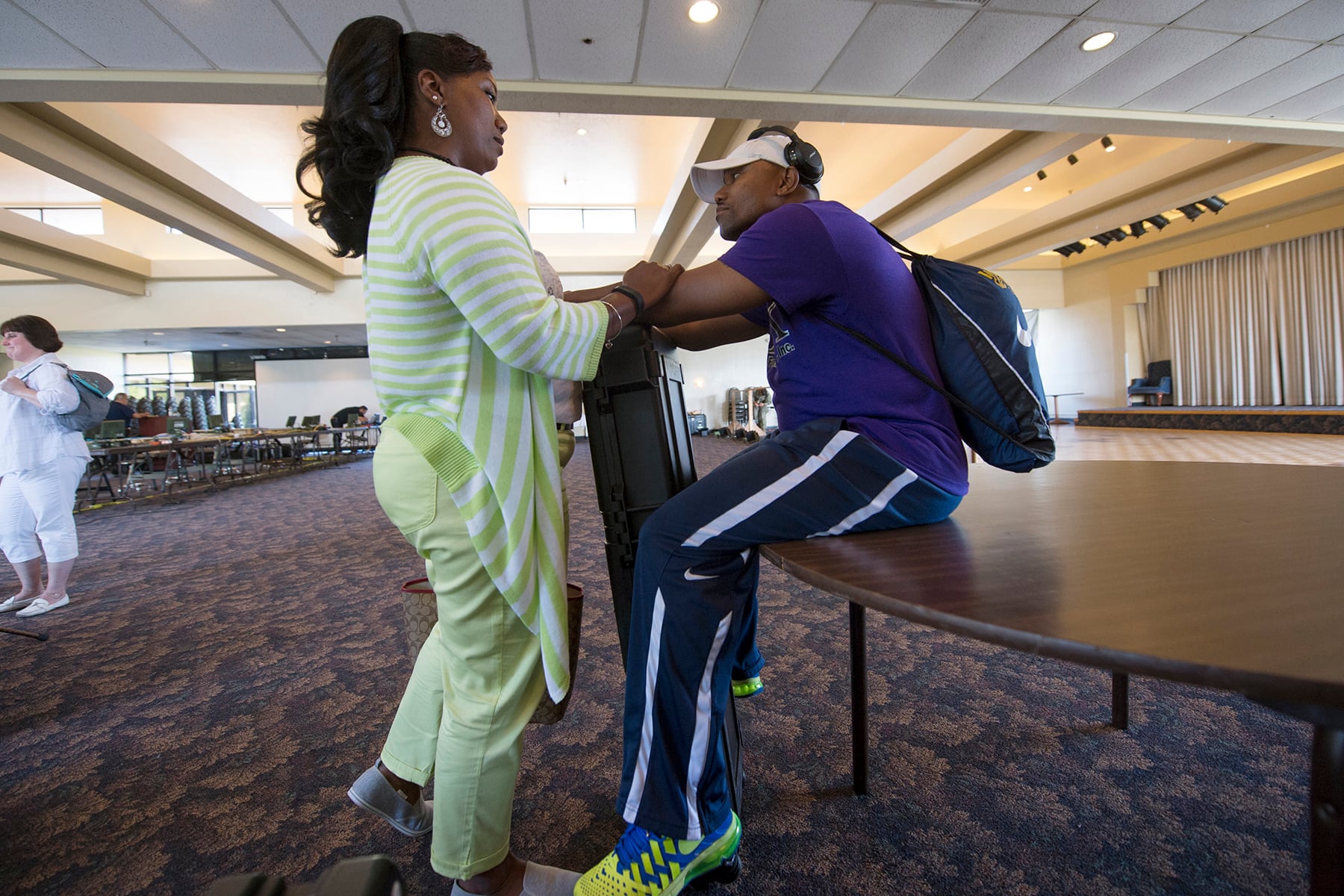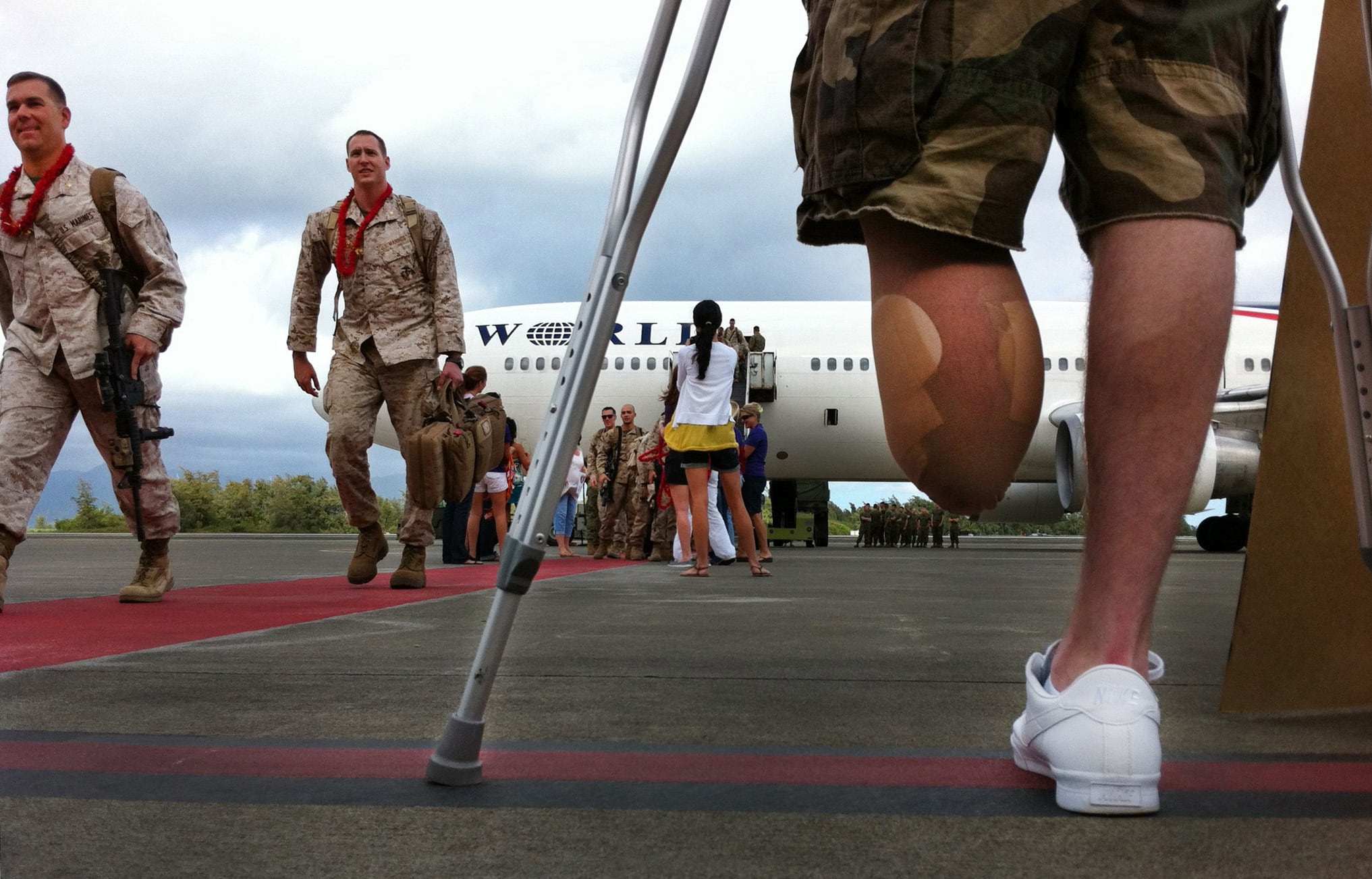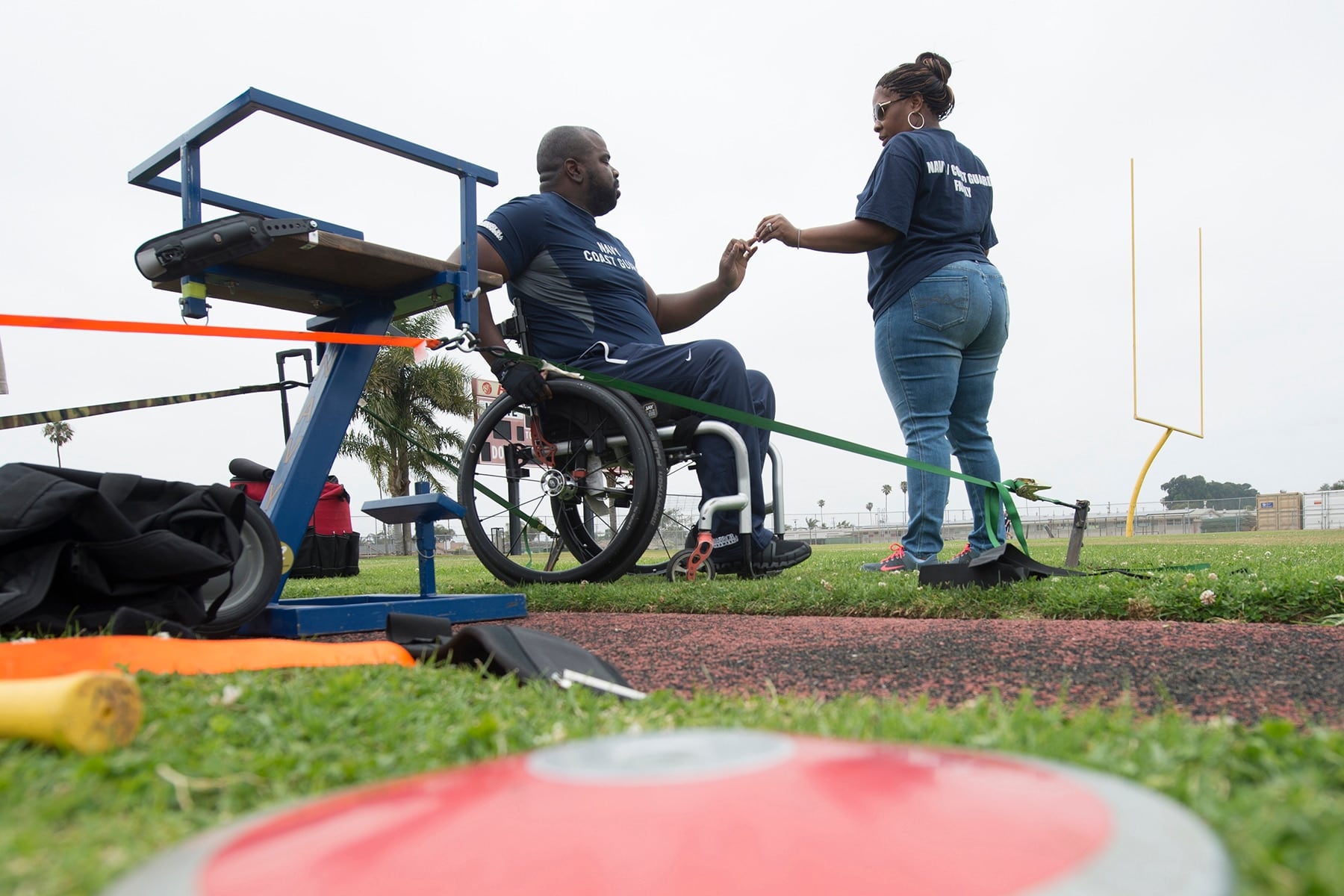Veterans Affairs officials are distancing themselves from a memo circulating among veterans groups this week outlining drastic changes to eligibility for department’s caregivers program, calling it a mistake and demanding staffers immediately stop sharing it.
The document, which was distributed to veterans families in at least four states, has raised concerns about more upheaval with the program, which has been the subject of intense scrutiny in the past two years for inequitable acceptance into and dismissals from it.
The memo appeared to be an update of a screening tool used by VA officials to help decide who can participate in the caregiver program, designed to help ease financial and logistical stress on individuals providing full-time care for injured veteran.
Nearly 19,300 veterans are currently enrolled in the Program of Comprehensive Assistance for Family Caregivers, which provides several thousands of dollars a month to family members caring for injured veterans to make up for their lost wages. It is not known how many of those families would have been effected if the new memo’s rules were to go into effect.
Along with basic program rules about needing full-time home care and not receiving other substitute care, the new screening tool included other disqualifying criteria such as having a part-time job, attending college classes, the ability to “safely be home alone” for any period, and the determination by VA doctors that “you caregiver is doing things … you could or should be doing for yourself.”
RELATED

Several families of injured veterans received the new memo in program information packets in recent weeks, and leadership at veterans advocacy groups have been peppering VA officials with questions over its origin and intent.
In a statement this week, VA press secretary Christina Mandreucci said the memo is an outdated and inaccurate document which does not reflect any current changes to the program.
“We have informed caregiver support staff that it should not be used or distributed,” she said. “We apologize for any confusion this has caused.”
VA officials have been working to remove the mistaken memo from department sites in recent days, and took down a related screening tool document on the main department web site earlier this week.
Officials from veterans groups said that confusion and stress has been significant. Steve Schwab, CEO of the Elizabeth Dole Foundation, said his group has been fielding calls from upset caregivers wondering if the program has been revamped without any warning.
“This looks like a mistake, a really horrible mistake,” he said. “VA needs to take responsibility for this, and I think they are.”
VA officials did not say where the document originated. Schwab said part of the confusion stems from how the caregiver program is currently administered. While the Program of Comprehensive Assistance for Family Caregivers does have a national office, most eligibility and operations decisions come from local officials.
In this case, a local decision to create a new screening tool for potential caregivers could have spread among several sites as new national rules, even though no such decisions had been made.
But Lauren Price, founder of Veterans Warriors — an advocacy group that focuses on VA accountability — said her organization still hasn’t received adequate answers on where the memo came from.
RELATED

“This memo was circulated in four separate [VA regions] -- Arizona, Mississippi, Pennsylvania and Florida. This clearly points to an origin at the VA Central Office,” Price said. “But they won’t give us any answers.”
“VA doesn’t have the legal authority to change eligibility for the program.”
Mandreucci said the department is considering eligibility changes in the future “to improve the current program” but will do so through the federal rulemaking process, which provides months of public comment time before any new rules are finalized.
Schwab said VA officials have repeatedly promised in recent days that veterans’ employment will not be used as disqualifying criteria for the caregivers program.
The memo is the latest measure of frustration for veterans monitoring the caregiver program, which was expected to undergo a major expansion this fall.
VA officials announced last month that because of problems with the department’s technology infrastructure, caregivers of veterans injured before 2001 will have to wait at least nine more months before they can enroll in the program.
Last year, VA Secretary Robert Wilkie ordered a moratorium on removing individuals from the caregiver program after numerous families complained they were being forced out by doctors despite little or no improvement in their veterans’ medical situation.
That order remains in effect, although the number of caregivers participating in the program is still down significantly over the last two years.
RELATED

Trisha Essary was one of those dropped from the stipend and still frustrated over how the program has been run.
Her husband, Bill, is a former Army sergeant who was medically retired 13 years ago after a truck accident left him with a head injury and an amputated leg. She served as his full-time caregiver for five years before the caregiver program was launched in 2011, and another six years after they began receiving the stipend.
But even though Bill still had problems accomplishing basic tasks like feeding and dressing himself, VA officials dropped him from the caregiver program completely last year, after he got a job as a heavy equipment operator. The couple said they were never told that could disqualify them from the program.
“We would tell (caregiver staff) where he was not functioning. Then when we read (the staff’s) report, it said ‘he can do this on his own,’” Trisha said. “It frustrated us to no end.”
Last year, while Trisha was at work, Bill made a mistake putting on his prosthetic leg and fell, shattering his collarbone. She believes that wouldn’t have happened if they were allowed to stay on the caregiver program.
“He’s 100 percent disabled and there are a lot of issues that are getting worse,” she said. “But basically, the only way he’s going to qualify again for the program is if he requires [a nursing home level of care].”
Schwab said he understands the frustration within the community over the program, and is working with families to separate facts from rumors about the eligibility rules.
Meanwhile, he is also asking VA to find ways to better coordinate operations of the caregiver program, both with outside groups and within the department itself.
“We need to prevent renegade decisions and incidents, and right now the structure of the program allows that,” he said.
Leo covers Congress, Veterans Affairs and the White House for Military Times. He has covered Washington, D.C. since 2004, focusing on military personnel and veterans policies. His work has earned numerous honors, including a 2009 Polk award, a 2010 National Headliner Award, the IAVA Leadership in Journalism award and the VFW News Media award.
Patricia Kime is a senior writer covering military and veterans health care, medicine and personnel issues.
